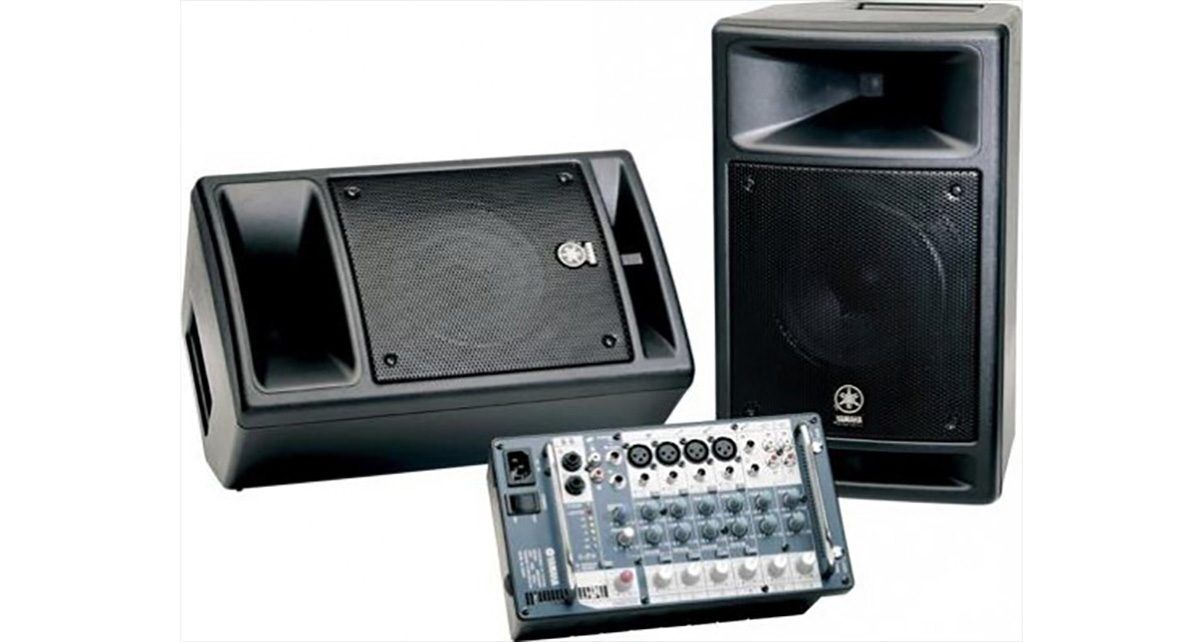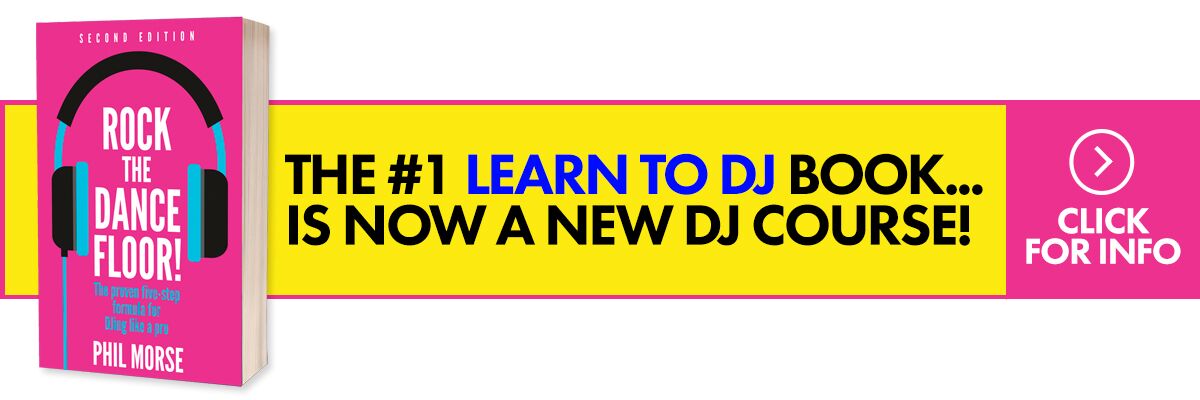Now we’ve examined some PA system basics, it’s time to answer a few of the most common questions about PA systems, to help you make sense of the seemingly almost infinite choice out there. This should make it easier for you to choose a system when it comes to time to buy. Once we’ve cleared up some of these common queries about amplifier options, power choices and mixers, we’ll move on in the next two parts to looking in more detail at speakers and amplifiers, and cables and soundchecking.
1. Do I need an amplifier with a PA system?
Yes, the answer is that you always need an amplifier, as no DJ controllers or DJ mixers ever have built-in amplifiers. The question really is: Do I need a separate amplifier? The reason for this is that nowadays, many manufacturers have moved the amplifier part of their PA systems into either the PA mixer (such mixers are called “power mixers”), or into the speaker/s (which are then called “active speakers”). In both cases it’s true that you do not need a dedicated amplifier, but you still need to pay due attention to the amplifier “part”, and it does still need the same qualities that you’d expect from a separate PA amplifier. (Next time we’ll look more closely at amplifiers.)
The typical set-ups we covered last week stay basically the same; it’s just that in these cases, the amplifier part has simply moved into the casing of the speaker or mixer. The thing you will need to do, however – especially with active speakers – is to count how many amplifiers you have and how much wattage they can provide. In general this is easy, as you can simply add these together. It is not 100% true, but as a rule of thumb it is good enough for most applications.
2. How much wattage do I need?
The answer to this is not simple, as many parameters can factor into this equation. Are you in a venue with a lot of plain walls? Does it have carpet? Is the venue rather long, or is it more more cubic? Does it have multiple floors, etc? All these things will influence the answer to this question. Also, wattage is not everything. A pro PA guy would look at a system’s SPL charts (distribution of frequencies), go through the venue with calibration instruments and so on to get this stuff right.
For us newbies to PAs, this is way too much and we need something easier to work from so here it goes. Some people will tell you I am crazy telling you this, but trust me I have used this for over 15 years and apart from very unusual venues I have never been wrong with this rule.
- Bare minimum – For a sufficiently loud DJ event, but not for extreme loud rave volumes, I call 5W per venue member. So for 100 people you would need 500W of power
- Loud, with power to spare – For a loud system with something in reserve meaning you could push it to rave volumes: 10W per venue member. This is a lot, as for 100 people this specifies 1000W of power
These ratings are for closed venues. If you go open air you need to have to at least double these numbers. (Please remember though that wattage alone is not enough; we still need a good PA system, which is what we’ll start to cover next week.)
3. Should I get a PA mixer or not?
Typically the sound source for your PA will be either your DJ controller, a DJ sound card (like a NI Audio 6 or Rane SL Series), or a DJ mixer. In all of these cases your signal coming out of those devices will already be a “line” signal, which means it is sufficiently pre-amplified to go directly into a PA power amplifier. So as we touched on last week, for a basic set-up this is a good thing, as basically you would need no PA mixer; you simply directly connect the controller to your power amplifier and you are done.
However especially for mobile DJs there may be some situations where you still want a small mixer added. In many cases, for example when doing weddings, you possibly need multiple microphones or other audio sources (DVD player, video camera…) added and amplified. The good thing however is that a very basic PA mixer will do; we do not need as many inputs as the typical band set-up, as most of our sound comes from a single source (your controller, DJ mixer…) and the other things are just “add ons”.
As I said last time, the other advantage of a PA mixer is that you can leave your DJ controller’s EQ flat (and so perform on that EQ however you like), and do all the venue-specific soundcheck things on the PA mixer. This is actually the main reason why I highly recommend a PA mixer even if you do not connect anything more than your controller to it.
So I would recommend getting a decent mixer with four to eight channels and good sound quality. As most power mixers (mixers with integrated amplifiers) are made for band set-ups, for a DJ set-up I would advise against a power mixer and go with a very simple standard model (meaning your amp will then be separate, or you’ll use “powered speakers”). You can get such mixers for about US$100 to US$200 dollars and you are done. Get one from one of the usual PA companies like LD, Peavey, Mackie or Yamaha and it should work out fine.
Good spec for a mixer
Your mixer should have at least four channels (at least two of which should have XLR inputs for microphones), input level gain controls (so if you have a really strong or weak signal you can tune it), treble and bass EQs, channel faders (on small mixers these are sometimes in the form of rotary knobs, which is fine), and a master fader (also sometimes a rotary knob).
Optional features include left/right pan controls on each channel, at least one stereo input channel (you could hook your controller in there and not use up two mono channels), two master channel faders (left and right), XLR balanced output (to go to your amplifier) and an output for a monitor system.
Next time…
Next time we’ll look a lot more closely at amplifiers and speakers, including speaker placements pointers, before moving on to cables and soundchecking in the final part.
Check out the other parts in this series:
- Beginner’s Guide To PA Systems, Part 1: Basics
- Beginner’s Guide To PA Systems, Part 3: Amps & Speakers
- Beginner’s Guide To PA Systems, Part 4: Cables & Soundchecking
Do you have a small PA system? what kind of configuration do you have? Are you looking to buy one? What questions do you have that are making it hard to choose? Please share in the comments.


